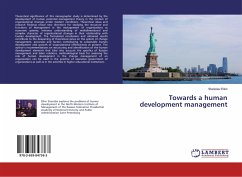This work started with an overview of some of the origins of current prevalent views and assumptions about the 'world'. The intention is, however, to propose that although some of these worldviews are widespread and in some senses modern, they are not axiomatic, not universal. Some of these worldviews have formed the meta-theoretical components of what can be termed mainstream Knowledge Management. it is suggested that these meta-theories are characteristic of a period in which they form part of a specific economic environment and wherein certain characteristics of performance and commitment have become necessary. Amongst others, economic goals may have somewhat displaced some of our social or spiritual interests, and are sometimes represented as the objective norm. In this light, we proposed that the main problem with the current state of KM cannot be technically resolved because this problem has its roots in some deep-rooted vales and assumptions about the world, and it is argued that we should articulate some alternative or even utopian understandings of KM.
Bitte wählen Sie Ihr Anliegen aus.
Rechnungen
Retourenschein anfordern
Bestellstatus
Storno








